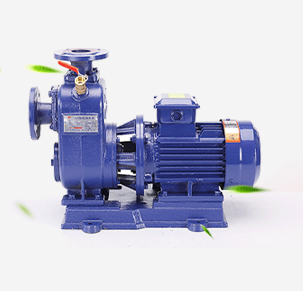English
- Afrikaans
- Albanian
- Amharic
- Arabic
- Armenian
- Azerbaijani
- Basque
- Belarusian
- Bengali
- Bosnian
- Bulgarian
- Catalan
- Cebuano
- Corsican
- Croatian
- Czech
- Danish
- Dutch
- English
- Esperanto
- Estonian
- Finnish
- French
- Frisian
- Galician
- Georgian
- German
- Greek
- Gujarati
- Haitian Creole
- hausa
- hawaiian
- Hebrew
- Hindi
- Miao
- Hungarian
- Icelandic
- igbo
- Indonesian
- irish
- Italian
- Japanese
- Javanese
- Kannada
- kazakh
- Khmer
- Rwandese
- Korean
- Kurdish
- Kyrgyz
- Lao
- Latin
- Latvian
- Lithuanian
- Luxembourgish
- Macedonian
- Malgashi
- Malay
- Malayalam
- Maltese
- Maori
- Marathi
- Mongolian
- Myanmar
- Nepali
- Norwegian
- Norwegian
- Occitan
- Pashto
- Persian
- Polish
- Portuguese
- Punjabi
- Romanian
- Russian
- Samoan
- Scottish Gaelic
- Serbian
- Sesotho
- Shona
- Sindhi
- Sinhala
- Slovak
- Slovenian
- Somali
- Spanish
- Sundanese
- Swahili
- Swedish
- Tagalog
- Tajik
- Tamil
- Tatar
- Telugu
- Thai
- Turkish
- Turkmen
- Ukrainian
- Urdu
- Uighur
- Uzbek
- Vietnamese
- Welsh
- Bantu
- Yiddish
- Yoruba
- Zulu
Telephone: +86 13120555503
Email: frank@cypump.com
Aug . 09, 2024 01:00 Back to list
Enhancing Efficiency with Slurry Booster Pumps for Optimal Industrial Processing and Handling Solutions
The Importance of Slurry Booster Pumps in Industrial Processes
Slurry booster pumps play a critical role in various industrial applications, particularly in mining, construction, and wastewater treatment. These specialized pumps are designed to transport thick, viscous mixtures known as slurries, which typically consist of solid particles suspended in a liquid medium. The ability to efficiently move such mixtures is essential for maintaining productivity and safety in numerous industries.
Understanding Slurry Pumps
A slurry pump operates differently than conventional pumps. The main challenge presented by slurries is their high density and particle content, which can cause blockages and wear in standard pumps. Slurry booster pumps are specifically engineered with robust materials and an impeller design that minimizes the risk of clogging and ensures longevity. The materials used in these pumps can vary widely, including rubber, hardened steel, or other alloys designed to withstand abrasion and corrosion.
Applications of Slurry Booster Pumps
One of the most common applications for slurry booster pumps is in the mining industry, where they are used to transport slurries of mineral ores and waste materials. These pumps help move the slurries from extraction sites to processing facilities, ensuring that minerals are efficiently separated from waste products. In this context, the pump's ability to handle a mixture of solids and liquids without losing efficiency is paramount.
In the construction sector, slurry booster pumps are often employed to manage mixtures of cement, sand, and water, which are vital to various building applications. Properly managing these slurries enables architects and engineers to maintain strict project timelines and quality standards.
The wastewater treatment industry also relies heavily on slurry booster pumps
. Contaminated water often carries solid waste, and effective removal of these particles is essential to ensure environmental compliance and protect public health. Slurry pumps help in transporting sludge from treatment facilities to drying areas, significantly influencing the overall efficiency of the wastewater management process.slurry booster pump

Advantages of Slurry Booster Pumps
The primary advantage of slurry booster pumps is their efficiency in handling high solid content mixtures. They are designed to perform in challenging conditions where conventional pumps would struggle or fail. This capability not only boosts productivity but also reduces maintenance costs associated with wear and tear.
Additionally, slurry booster pumps contribute to energy savings. Their specialized engineering allows for better performance at lower energy costs, making them an economically beneficial option for businesses operating in industries that rely on pumping slurries.
Maintenance Considerations
Despite their robust design, slurry booster pumps require regular maintenance to ensure optimal performance. Monitoring wear parts and making timely replacements can significantly extend the life of the pump. Operators must also ensure that the pump is correctly sized and configured for the specific application to prevent issues such as cavitation or overheating.
Conclusion
In conclusion, slurry booster pumps are indispensable in various industrial applications, addressing the unique challenges of transporting slurries effectively. Their robust design, efficiency, and ability to handle difficult mixtures make them a vital component in sectors such as mining, construction, and wastewater treatment. As industries continue to grow and evolve, the role of slurry booster pumps will remain crucial in ensuring operational success and sustainability. Investing in high-quality slurry pumps and their maintenance is fundamental for any business aiming to optimize their processes and improve productivity.
-
ISG Series Vertical Pipeline Pump - Chi Yuan Pumps Co., LTD.|High Efficiency, Energy Saving, Low Noise
NewsJul.30,2025
-
ISG Series Vertical Pipeline Pump- Chi Yuan Pumps|High Efficiency&Low Noise
NewsJul.30,2025
-
ISG Series Vertical Pipeline Pump-Chi Yuan Pumps Co., LTD.|High Efficiency&Energy Conservation
NewsJul.30,2025
-
ISG Series Vertical Pipeline Pump - Chi Yuan Pumps Co., LTD.|Advanced Hydraulic Design&Energy-Efficient Solutions
NewsJul.30,2025
-
ISG Series Vertical Pipeline Pump - Chi Yuan Pumps Co., LTD.
NewsJul.30,2025
-
ISG Series Vertical Pipeline Pump - Chi Yuan Pumps Co., LTD.|energy-efficient fluid handling&industrial durability
NewsJul.30,2025










